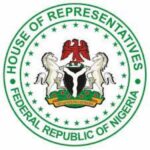By Chesa Chesa
The incoming administration of Bola Ahmed Tinubu has been advised to focus heavily on economic growth, addressing income levels, and making people wealthier, as a governance strategy to tackle corruption and redirect Nigeria’s development trajectory.
The advice was given at the weekend in Abuja during Nextier’s most recent edition of its Development Discourse hosted by Patrick Okigbo III, founding partner of Nextier, a public policy firm; and Dr. Portia Roelofs, a lecturer at the Kings College, London United Kingdom (UK) and the author of “Good governance in Nigeria: Rethinking Accountability and Transparency in the Twenty-First Century.”
The crux of the conversation was focused on how Nigeria can reconceive the idea of good governance as a new administration is billed to assume power by May 29 for another four years.
The discourse noted that “development is absent in Nigeria, social and economic indicators like poverty, inflation, unemployment are at a record high”, while the country is plagued by persistent insecurity, fiscal imbalance, rising debt profile, and low revenue.
“The incoming administration will face the unenviable task of redirecting Nigeria’s economic direction to inclusive growth and development. If this must be achieved, accountability and transparency in governance must be on the boat to the scriptural “promised land”, the intellectual discourse noted.
Leveraging on the book authored by Portia Roelofs, the discourse acknowledged the endemic corruption in Nigeria, but noted that it should not undermine development if he administration focuses on economic growth and making people wealthier.
“Nigeria can look beyond corruption to drive transformation. Present-day China and the United States in the 1800s were corrupt. Attention shifted to focusing on economic growth, addressing income levels, and making people wealthier; afterward, corruption dropped as people became less dependent on the state.
“State accountability institutions like Independent National Electoral Commission (INEC) and anti-graft agencies like Economic and Financial Crimes Commission (EFCC) and Independent Corrupt Practices and Miscellaneous Offences Commission (ICPC) must live up to their mandate and enforce accountability and transparency in government. They must hold more powerful actors accountable”, the session recommended.
Roelofs also recalled that her book focused on the debate that the ‘Lagos Model’ provoked in the media, the politicians, and the people, and that if manifestos must manifest, it must be on the premise of accountability to the people and transparency in governance.
She explained that “the Lagos model attracted foreign donors like the World Bank, USAID, and DFID as a pre-market approach after the Structural Adjustment Programme (SAP). It was seen as a local initiative to what the international institutions have struggled to do for many years.
“The Lagos Model is a Tinubu style of governance that established and expanded a tax-driven economy, improved urban management, infrastructural development, and an independent political force to grow Lagos into one of Africa’s leading growth cities.
“Good governance is socially embedded. Accountability exists when leaders are accessible. Transparency shows data evidence for the people to track government activities, like the yearly budget at the national or sub-national level.
“Nigeria needs social indicator data to ascertain if her leaders are more honest, sincere, and performing. Leaders must be accessible, responsive, and listen to the people’s yearnings.”
It was further concluded that “an election must remain a prudent tool to hold the political elites to account. There is a growing civil society capacity for accountability engagements. Corruption must be seen as a complex collective action rather than a principal-agent problem.
“A social sanction, loss of social support, and withdrawal of followership as a tool for accountability.
“The route to democracy in Nigeria is a rejuvenation of the party system. Politics must not divorce from social relations. We must accept the role of social relations and politics.
“If we institutionalize accessibility, it will subject leaders to transparency and accountability. Nigeria will surmount some of its governance challenges for the next four years when accountability and transparency become a core of our political strategy.”



